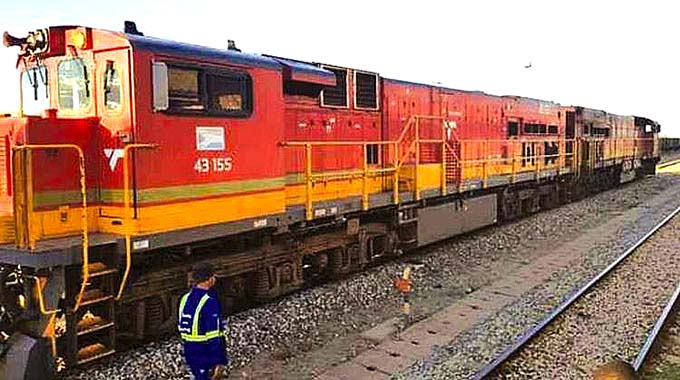NRZ restructuring exercise bears fruit
THE National Railways of Zimbabwe (NRZ) says the ongoing restructuring exercise is bearing fruit as evidenced by the ability to clear a nine-year salary backlog and meet operating expenses on time.
The company recently revealed that it had cleared over $320 million in outstanding salary arrears having accrued a salary backlog of about US$80 million by 2018.
NRZ acting general manager, Mrs Respina Zinyanduko, told Business Chronicle the company’s turnaround strategy was impacting positively on the business.
“The notable achievement we did (this year) as NRZ was to clear arrear salaries as you may be aware NRZ was known for not paying employees for a very long time and the debt was stretching from 2012,” she said.
“The board made a resolution that we were going to pay employees plus an ex-gratia component considering that the salaries were in US dollars and now we were paying in RTGS in terms of SI (Statutory Instrument) 133 of 2019.
“So, we then had to find a way of trying to cushion employees. All in all, the amount we paid was about $326 million inclusive of ex-gratia and that is a lot of money for a company that was struggling like NRZ.”
In the meantime, Mrs Zinyanduko said the business was able to meet current obligations in terms of salaries but is focused on growing wider business and scaling up capacity utilisation.
The company requires about US$400 million to fully recapitalise operations in the shortterm and about US$1,9 billion in the long-term. Among the mandates given to the board and management, she said restructuring NRZ in line with business operations was a top priority.
Previously, NRZ had a top-heavy structure, which was not commensurate with the entity’s business operations. Under this drive, NRZ has been able to come up with a leaner management structure with the number of executive directors has been slashed from six to three.
Mrs Zinyanduko said they were now finalising the restructuring process and would fill 222 vacancies that were created as a result of the exercise.
“Some people were on acting capacity on certain positions for a very long time, so we are in the process of recruiting
substantively, but recruitment will be done internally,” she explained.
“We are not going to recruit anyone from outside except for situations where we don’t have expertise internally, that’s when we will resort to external recruitment.”
Mrs Zinyanduko said the exercise was now 85 percent complete and has ensured job retention.
“We have done the rationalisation where in NRZ, the critical departments — the tracks and security departments were understaffed because people would create vacancies for their relatives and friends within the clerical and managerial areas and take those people from tracks and security, and those departments (tracks and security) were always
understaffed,” she said.
“So, we came in to rationalise so that we can still use the available employees but getting full value as NRZ.”
Mrs Zinyanduko also said that lateral transfers have resulted in reduction of NRZ wage bill because in most cases the parastatal resorted to using short-term contract workers to attend to the railway tracks that have for a long time been in a deplorable state.
“Part of the problem was that the tracks department has been always understaffed. Now I can safely say you are going to see a change going forward because that department has been fully manned with each team having 20 people and a vehicle allocated and we are rest assured that we are going to see a change,” she said.
Of late the NRZ security and loss control side has been having challenges with some customers due to losses that were incurred to some extent on account of vandalism of the railway infrastructure.
Going forward, it is hoped that the staffing of the security and loss control department will go a long way in addressing these challenges.
“It’s not only the security department but looking at issues to do with some staff members who are going to work in our clinics. Those are some of the issues that we are going to address through restructuring,” said Mrs Zinyanduko. — The Chronicle











